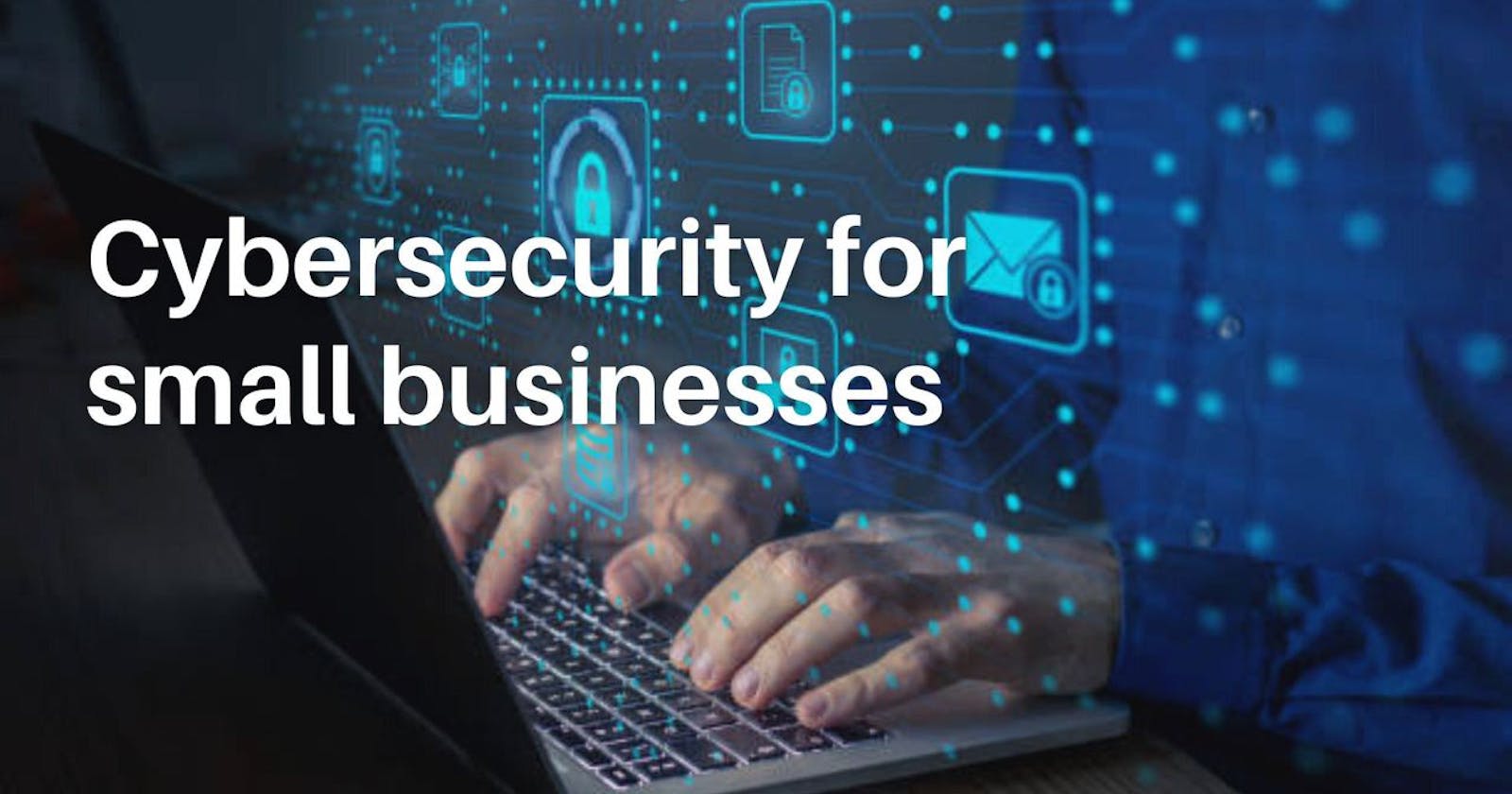Cybersecurity for Small Businesses
How to Implement Effective Cybersecurity Measures.
Cybersecurity is not only limited to big organizations or the government, As far as you run a business, no matter the size, it is important to know about cybersecurity risks and also know capital tips for safeguarding your digital assets.
The world has evolved, therefore technology has covered a large percentage of life. Most times, everything we do is done digitally, from our phones to our laptops, etc., and the transaction is done online most times (assessing the internet). Therefore, we must be all aware of the risks involved in using digital data and its protection.
This is what I will be covering in this article:
What is cybersecurity?
Importance of cybersecurity.
Common cybersecurity threats.
Security practices to implement in your small businesses.
What is cybersecurity?
According to Wikipedia Cybersecurity is the protection of computer systems and networks from attack by malicious actors that may result in unauthorized information disclosure, theft of, or damage to hardware, software, or data, as well as from the disruption or misdirection of the services they provide.
Cybersecurity simply means protecting networks, devices, and data from unauthorized access or criminal use.
Some other definitions are:
"Cybersecurity is the technique of protecting internet-connected systems such as computers, servers, mobile devices, electronic systems, networks, and data from malicious attacks is known as cybersecurity".
"Cyber security is the practice of defending computers, servers, mobile devices, electronic systems, networks, and data from malicious attacks. It's also known as information technology security or electronic information security".
Importance of cybersecurity
Protection of personal data
In a time when personal data is collected, stored, and shared online, maintaining user privacy is crucial. Cybersecurity helps to protect personal information from being exploited or misused, ensuring that individuals' privacy rights are secured.
Prevention of Cyberattacks
Cybersecurity prevents malware infections, ransomware, phishing, and denial-of-service (DoS) attacks, that can cause significant harm to individuals and organizations.
Prevention of Financial Losses
Cyberattacks can result in financial losses due to theft of funds, fraud, or disruption of financial services. By implementing strong cybersecurity measures, organizations can minimize the risk of financial losses resulting from cyber incidents.
Read more here.
Common cybersecurity threats
Malware
Malware, which means malicious software, encompasses various types of harmful software, such as viruses, worms, and trojan horses. Malware can damage computer systems, allow hackers to gain access to your network in an unauthorized manner and even steal your sensitive data.Ransomware
Ransomware is a type of malware that attempts to extort money from the computer user by infecting and taking control of the victim's files and documents. These attacks have been on the rise, targeting businesses, governments, and individuals alike, causing significant financial and operational damage.Phishing
Phishing attacks are a type of social engineering tactic where cyber criminals send fraudulent emails, text messages, or website links to trick users into revealing sensitive information, such as login credentials or personal data. This information can then be used to commit fraud, identity theft, or gain unauthorized access to your systems.
Viruses
Viruses are harmful programs intended to spread from computers to other connected devices like a disease. Cybercriminals use viruses to gain access to your systems and to cause significant and sometimes unrepairable issues
Spyware
Spyware is a form of malware that is designed to gather information from a target, and then send it to another entity without consent.
Security practices to implement in your small businesses
Employee Training and Awareness
Ensure basic security practices and policies for your employees, such as requiring strong passwords, training them to recognize phishing emails, avoiding clicking on suspicious links, and reporting any security concerns.
Protect information, computers, and networks from cyber attacks
Having the latest security software, web browser, and operating system is the best defense against viruses, malware, and other online threats. Set antivirus software to run a scan after each update. Install other key software updates as soon as they are available.
Make backup copies of important business data and information
Back up the data on your computers regularly. Such as word processing documents, electronic spreadsheets, databases, financial files, human resources files, and accounts receivable/payable files. Backup data automatically if possible, or at least weekly.
Secure Wi-Fi networks
If you have a Wi-Fi network for your workplace, make sure it is secure, encrypted, and hidden. Separate guest networks from internal networks to prevent unauthorized access.
Limit employee access to data and information
One employee should not be given access to all data systems. Employees should only be given access to the specific data systems that they need for their jobs, and should not be able to install any software without the organization's permission.
Strong Password Policies:
Enforce the use of complex passwords with a mix of uppercase and lowercase letters, numbers, and special characters. Implement multi-factor authentication (MFA) wherever possible to add an extra layer of security.
Related Articles:
Federal Communications Commission: Cybersecurity for Small Businesses
Business News Daily: Cyberattacks and Your Small Business: A Primer for Cybersecurity
